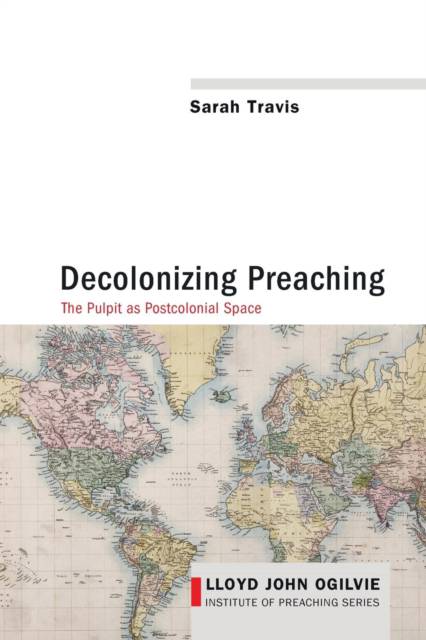
Je cadeautjes zeker op tijd in huis hebben voor de feestdagen? Kom langs in onze winkels en vind het perfecte geschenk!
- Afhalen na 1 uur in een winkel met voorraad
- Gratis thuislevering in België vanaf € 30
- Ruim aanbod met 7 miljoen producten
Je cadeautjes zeker op tijd in huis hebben voor de feestdagen? Kom langs in onze winkels en vind het perfecte geschenk!
- Afhalen na 1 uur in een winkel met voorraad
- Gratis thuislevering in België vanaf € 30
- Ruim aanbod met 7 miljoen producten
Zoeken
€ 33,45
+ 66 punten
Uitvoering
Omschrijving
Colonialism and imperialism continue to impact the personal and social identities of North American preachers and listeners. In Decolonizing Preaching, Sarah Travis argues that sermons have a role in shaping the identity and ethics of listeners by helping them formulate responses to empire and colonization. Travis employs postcolonial theories to provide important insights for the practice of preaching today. She also turns to the social doctrine of the Trinity to offer a vision of the divine/human community that effectively deconstructs colonizing discourse. This book offers preachers and other practical theologians a gentle introduction to colonial history, postcolonial theories, and Social Trinitarian theology, while equipping them with tools to decolonize preaching and strategies for preventing, resisting, and responding to colonizing discourse. Travis effectively casts a vision of a "perichoretic space" in which preacher and listener encounter the living God-in-Trinity and are transformed, reconciled, and sent out to others in the church and beyond.
Specificaties
Betrokkenen
- Auteur(s):
- Uitgeverij:
Inhoud
- Aantal bladzijden:
- 168
- Taal:
- Engels
- Reeks:
- Reeksnummer:
- nr. 6
Eigenschappen
- Productcode (EAN):
- 9781625645289
- Verschijningsdatum:
- 13/11/2014
- Uitvoering:
- Paperback
- Formaat:
- Trade paperback (VS)
- Afmetingen:
- 152 mm x 229 mm
- Gewicht:
- 258 g

Alleen bij Standaard Boekhandel
+ 66 punten op je klantenkaart van Standaard Boekhandel
Beoordelingen
We publiceren alleen reviews die voldoen aan de voorwaarden voor reviews. Bekijk onze voorwaarden voor reviews.









